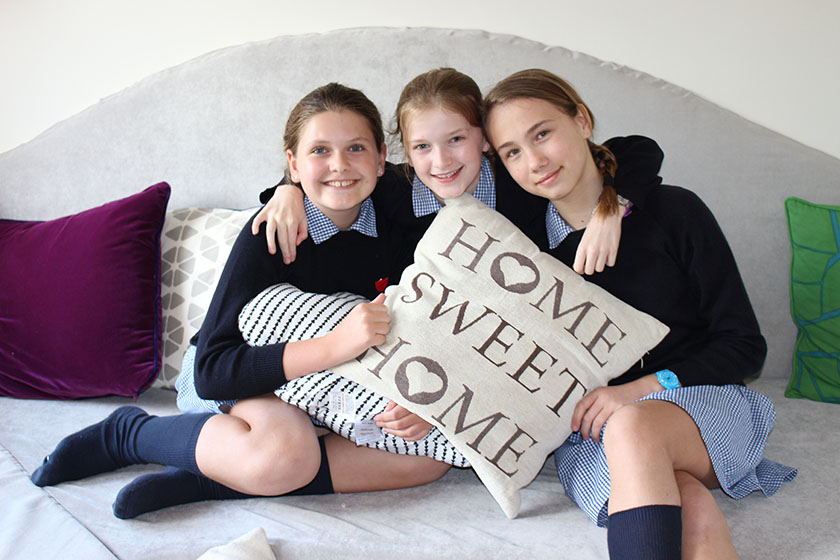Boarding Prep Schools Back in Fashion
By
7 years ago
It’s hard to get homesick at the country’s best boarding preps
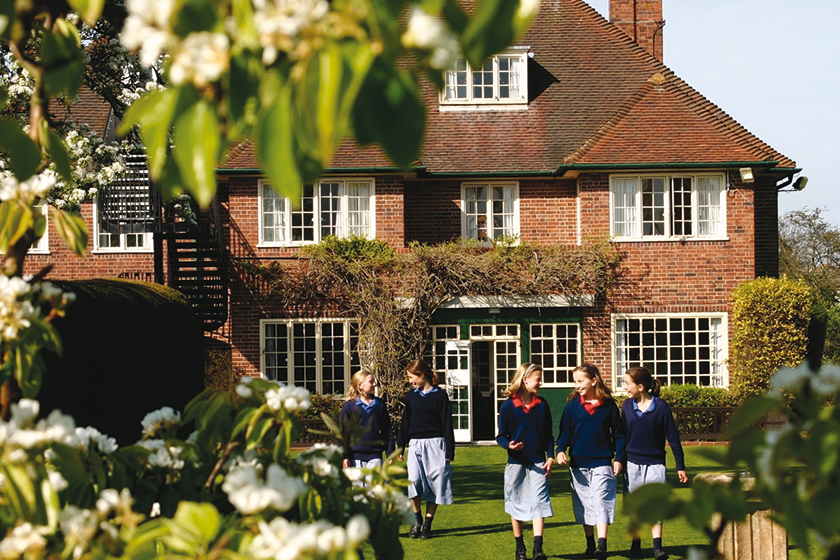
Cosy matrons, cuddly dogs, super flexibility and time to play, is this the secret to a new trend in boarding? Charlotte Phillips finds that boarding prep schools have never been so popular.
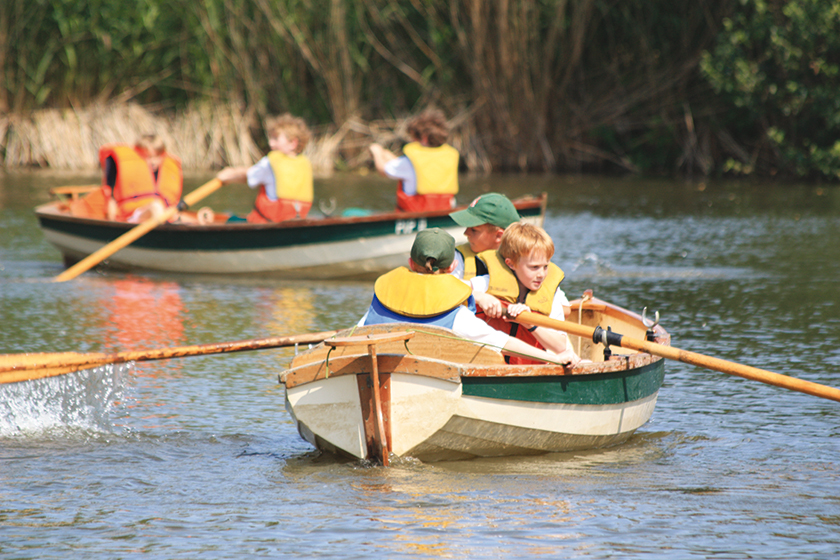
It’s family life at its best, the way we’d all want it. A session of whinge-free homework followed by a leisurely meal eaten convivially around the table with lots of chat. Cricket, den-making filling long summer evenings; hot chocolate and board games for when the nights draw in. All this achieved with scarcely an electronic gadget in sight – and often strictly rationed when they are.
To many parents, it seems an impossible dream. Old-style child-rearing that exists only in books or their own memories. Yet it’s there in abundance in our preparatory boarding schools, which are increasingly seen as custodians of a fairy tale upbringing, under threat everywhere else.
Boarding prep schools
A decade ago, boarding prep schools faced what was euphemistically referred to as challenging times: parents were dealing with straightened finances and there was an uncompromisingly politically correct attitude to child-rearing. Once you’d had children, you were expected to revel in their company during every minute of downtime as well as in the holidays and, after greeting their return from the nine to three grind with shouts of exaltation, fill it with an educationally nutritional programme of well-planned and stimulating activities that honed and toned both the mind and body.
Fail to deliver or dare to contemplate boarding, and at the very least, you could be called to account by the paramilitary wing of your mothers’ book club, found guilty of dereliction of duty and sentenced to a lifetime of being at the wrong end of dinner party gossip.
But these boarding prep schools hung on in there and stuck to their guns, doing what they do best, with a clear idea of the sort of education they wanted to provide, confident that by doing an excellent job and keeping parents on side, they’d win through; and it seems that they have.
Why is boarding popular again?
Schools report prospective parents signing up for a boarding place when it wasn’t even on the original shopping list. At Sandroyd School, near Salisbury, things have picked up to the point where often there’s no spare bed to be had. Other schools report similarly buoyant figures.
Location, location, location
The eye candy factor helps. While parents may not actually salivate when contemplating those rolling acres or mellow stonework, not to mention old tales embracing centuries of history, it can be a close call. No wonder head teachers, not always known for their reticence, do sometimes let the surroundings speak for themselves.

‘I walk the parents over and don’t have to say anything,’ says Simon O’Malley, head of Wellesley House, where the girls’ boarding house is set in woodland, crowned in spring with hosts of daffodils.
Flexiboarding
Part of the boarding prep’s success was that while they held onto their raison d’être, they adapted to the times.
A few schools like Ludgrove in Berkshire, Summer Fields and the Dragon, both in Oxford, are still resolutely boarding schools; three weeks at school, with a night or two off. They remain popular with parents, including those in the armed forces, diplomatic services, or working abroad.
Many schools, however, have adapted to the demands of modern parents who want their children home at weekends, embracing a more flexible attitude offering boarding in all its manifestations; full, weekly, flexi and even – like any decent menu – tasters.
Flexibility is the key, says Richard Foster, headmaster of Windlesham House School in West Sussex. He describes the mood as optimistic and upbeat. No wonder, given that numbers are ‘stronger than they’ve been for decades.’
Customised boarding
Elsewhere, there’s what amounts almost to customised boarding. While pupils at Dulwich Prep School in Cranbrook, Kent, may not always have the same bed, their own duvet covers or pillows; soft toys, (even for older boys) are the secret weapon in ensuring they have a personalised space.

There, as at Holmewood House, in Kent, energetic staff are on hand to make sure dorms are assembled in record time. Just as well, given that parents in search of a bed for a night for their child have been known to turn up on the doorstep clutching a suitcase and wearing a pleading smile. Some children stay on nights when they have specific activities; others if parents have early morning meetings. ‘It’s whatever suits the family,’ says Mary O’Riordan, a houseparent.
After school activities
There’s no denying the fact that day schools are increasingly trying to fill the yawning gap between the end of lessons and supper time, with many offering extended days that can run up to 6.00 pm or later. But where boarding schools have the edge is in offering activities and clubs run by the very same staff who are there during the day, too.
‘A day school simply stops at half past four or five o’clock. You may well have after school clubs and so on but they’re not run by your day teachers … so it’s not quite as homely, warm and cosy as it is if this is where you are five days a week,’ agrees Hilary Moriarty, national director of the Boarding Schools’ Association.
And parents aren’t the only ones giving in to the realisation that their manic after school juggling is something that schools handle better. For an increasing number of families it’s the children who demand to board.
Trips abroad
As part of the Cothill Educational Trust, Mowden Hall School in Northumberland takes educational variety (literally) even further, offering Year 7 pupils a term’s boarding at Sauveterre in South West France. It’s something parents ‘lap up,’ says the headmaster, Ben Beardmore-Gray. ‘Mowden children from the north of England and Scotland are mixing with children from other schools who have a very different outlook on life… it’s a big melting pot.’
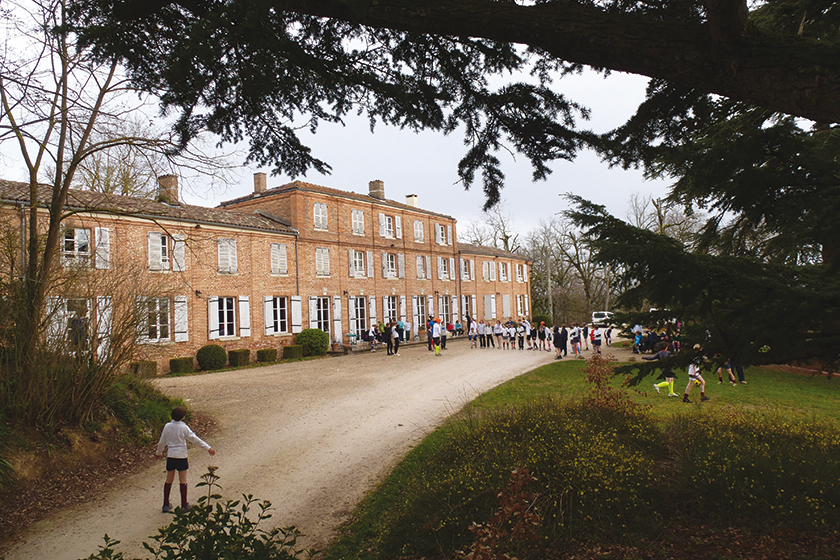
Mowden Hall at Sauvettere
With opportunities like this, it’s perhaps not surprising that while boarding numbers are healthiest amongst older pupils, with a marked increase in weekly boarding, too, there are also reports of a small, but significant increase in enquiries from parents of younger children. Two years ago, Horris Hill started taking Year 3 boarders and now has its first in Year 2, who was desperate to join his friends. It’s a similar story at Sandroyd, where up to eight of its Year 3 pupils often choose to board at the same time, enjoying what can have the feel of a giant sleepover.
Which boarding prep school?
The pull to board is particularly noticeable as the weather improves, with schools picking up more first time boarders in every age group in the summer term than at any other time of year, and with dads in particular susceptible to the nostalgia of cricket matches played on long summer evenings.
As to the future? If parent approval ratings are anything to go by, it’s looking good. Diminutive in number, often equally petite when it comes to head counts, boarding prep schools often punch well above their numerical weight when it comes to parent appeal.
Boarding is once again a B word that can be uttered in polite society without fear of recrimination; the prep schools that offer it are loud and proud about its virtues. And while Waterloo may have been won on the playing fields of Eton, boarding prep schools seem to be winning a smaller scale battle in the hearts and minds of middle England all on their own. Read about the best boarding prep schools below…
Port Regis
The majority of pupils at Port Regis enjoy some form of boarding before they leave for their senior schools, whether that be full, weekly or occasional. On an average weekend there are over 70 boarders (rising to 120 on the most popular ones) and there is a full programme of activities, games and outings designed to keep everyone occupied and having fun. Unlike many boarding prep schools, Port Regis never closes at weekends or exeats, something that overseas, expat and armed forces parents particularly appreciate.
Hanford
In addition to including sections on manners, tree climbing and scholarships on its website, Hanford, an all girls’ boarding prep school in lovely Dorset, wins in the pony, as well as the academic stakes.

‘We want the girls to stay little for as long as possible,’ says Karen Mallinson, head of admissions. ‘With only a hundred girls, we’re quite small, so it’s still very family, very cosy, everybody knows everybody very well.’ It’s also one of the few schools to lay on a bus service to London for exeat weekends and at the beginning and end of term. Sadly, there’s no similar service for the ponies, which are collected the normal way by horse box, trundling up and down the back drive, even for two day exeats.
Orwell Park
‘Though it sounds corny, what we offer is a childhood,’ says Sarah Kirby-Smith, of Orwell Park School in Nacton, Ipswich. By way of proof, she lists the achingly wholesome activities on offer, including camps, hiking and walking. ‘I’m painting a very idyllic picture,’ she says, half apologetically, ‘but it really is like that.’
Aldro
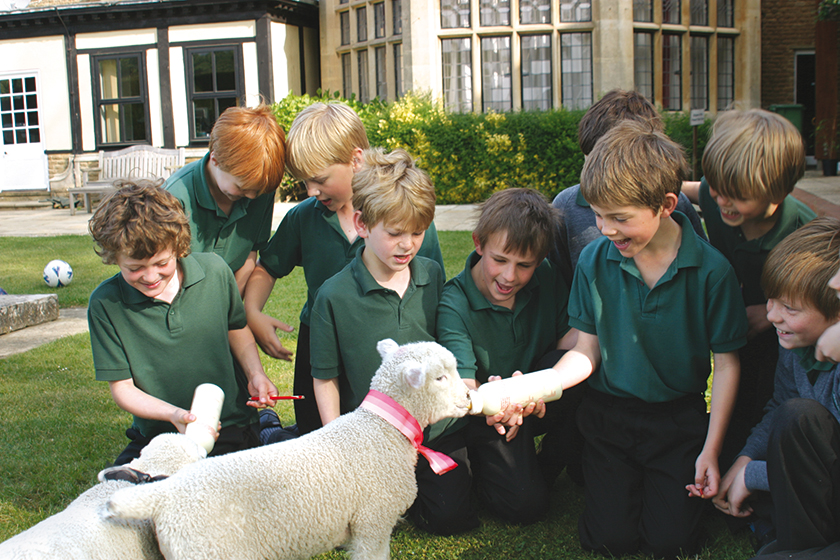
Boarding is not just about providing a balance that busy parents can’t always manage, but offering a breadth of outlook they just couldn’t get anywhere else. Surrey-based Aldro provides a welcome alternative to what can feel like the pressure cooker atmosphere of the capital, pulling in many Londoners drawn by its winning looks (its grounds even include a lake) and excellent academic results.
Horris Hill
Sarah Curling, mother of two sons at Horris Hill, near Newbury, says her ten-year-old is loving life as a boarder. The school’s small and cosy atmosphere, with staff who can’t do enough for their pupils, to the point where they can’t resist popping in, even when officially off duty, adds up to something very special. ‘I’d use the Danish name hygge that means cosy, warm and family to describe it,’ she says, ‘I felt that my sons would be looked after.’
Aysgarth
That sense of creating a world apart from the stresses and strains of modern life is something echoed at Aysgarth Preparatory School, set so deep in the heart of Wensleydale that its entry on Google Maps comes framed with a large expanse of empty space. Founded in 1877 by the Reverend Clement Hales. Hales gave the school the motto ‘ex quercu non ex salice’ – of oak, not of willow – and in the early days, boys spent their time, as documented by Colonel Meinertzhagen, ‘learning to swim in the river in the pool below the falls; walking on the slopes of Penhill and learning the ways of birds, otters and foxes’. Boys enjoyed exceptional freedom and unrivalled sports facilities for those days, including an Eton Fives court and an outdoor swimming pool.

Today, says head Rob Morse, Hales’s ethos continues to endure. Small classes ensure that boys are given plenty of individual academic attention; and the extensive grounds, including a state-of-the-art sports hall and an indoor pool, mean all pupils aged three to 13 can enjoy plenty of physical activity, up to and including den building.
Eagle House
Though the honing of organisational skills is also something emphasised by Eagle House School, Sandhurst (which publishes a splendid boarding blog), the softer edges are always close at hand too. With mixed age boarding you’ll find ‘an older brother who always comes to the girls’ area doors each night to give his sister a kiss; another older brother always read to his younger brother before he went to sleep,’ says the school. ‘It’s very touching behaviour and particularly good for other children to witness.’
Handcross Park
Richard Brown, headmaster at Handcross Park School in West Sussex, highlights the family ethos that permeates so much of boarding school life which he feels has played a huge part in its success. ‘We have a family running the house … we teach the children about tolerance and kindness to each other, as you would in a family, and we’ve gone back to things like a family service at dinner time.’

